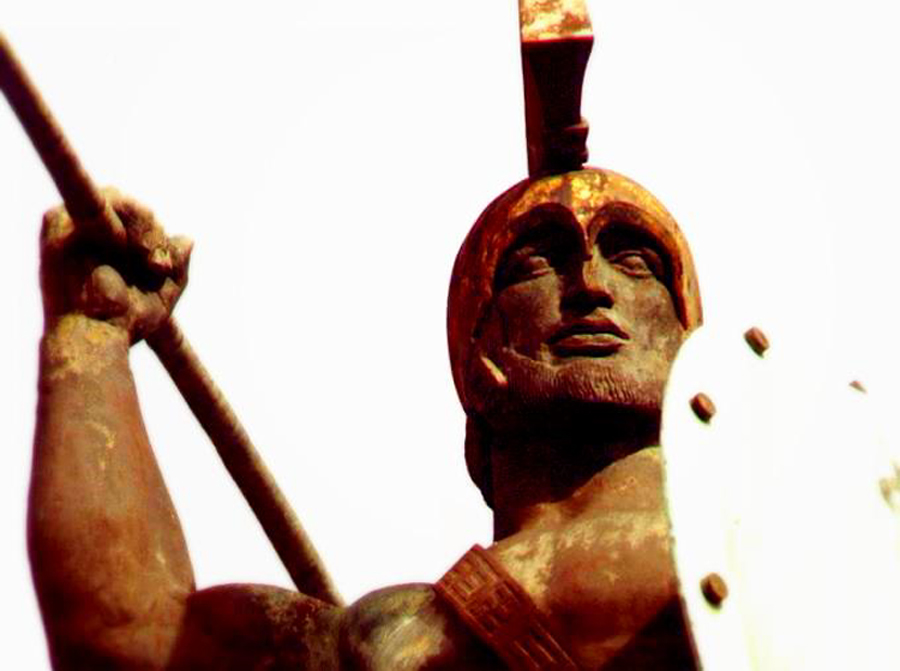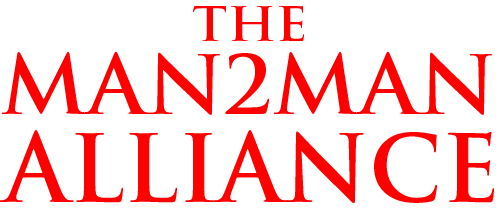




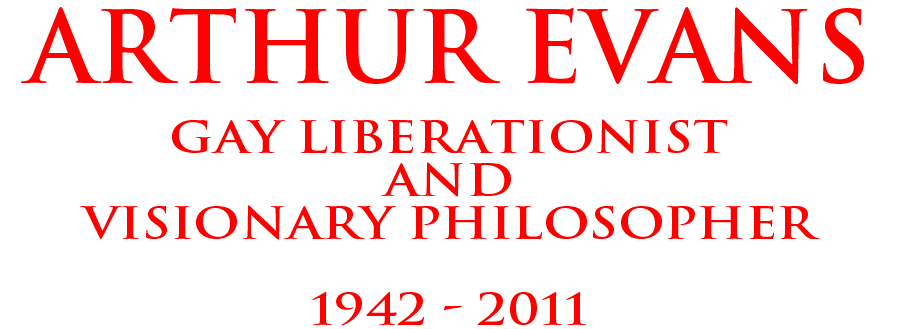


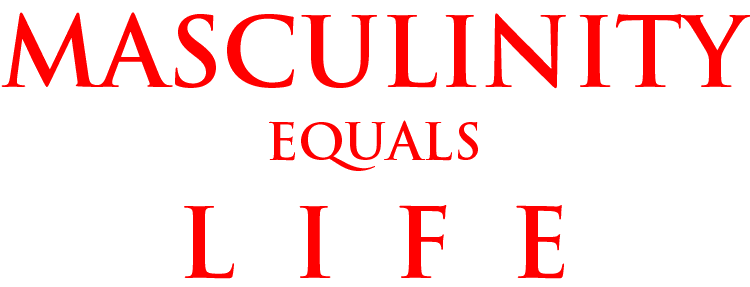




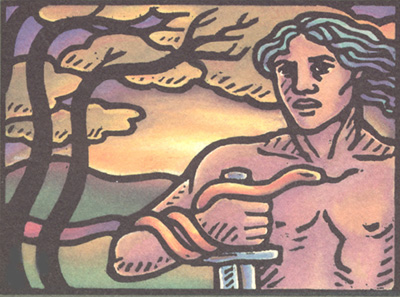


Arthur Evans
Gay Liberationist and Visionary Philosopher
1942 -- 2011
9-18-11
My old friend Arthur Evans died last week in San Francisco.
He was 68.
Arthur was the sole surviving founder of Gay Activists Alliance, the most important Gay Lib organization.
Here's a link to a sadly lacking NY Times obit of Arthur.
Which nevertheless does chronicle some of his achievements.
I'll say more about the Times' obit -- a bit later.
For now, I want to note that Arthur was also responsible for the publication of my first three articles about Frot.
He introduced me to Toby Johnson, then editor of White Crane Journal, which published Hyacinthine Love.
He also introduced me to Jack Nichols, editor of GayToday, who published both Frot: The Next Sexual Revolution and Interview: Cockrub Warrior Bill Weintraub.
If you read the Times' obit, you may wonder why Arthur, who wrote books critical of "patriarchy," would have supported my work.
The answer is that Arthur was a true Gay Liberationist, who understood the importance of dialogue and discussion about sex, and specifically about Sex between Men.
He understood that it was important to talk.
Not censor, but talk.
I don't know what Arthur's own sexual practices were, but my suspicion is that he was HIV negative, which suggests, given his age and where he lived, that he didn't do a lot of anal.
Nor was he promiscuous.
So -- nowadays you'll hear people -- gay-identified people -- who weren't around for Gay Liberation, which only lasted as a movement for about five years --
you'll hear people who weren't there claim that Gay Lib was about anal and promiscuity.
And effeminacy.
That's not remotely the case.
If it were, none of the guys I just mentioned -- Arthur, Toby, and Jack -- would have supported or published my work.
Gay Lib, as I've often said, was about freeing people to be their authentic sexual selves.
That's what it was about.
And that's why Arthur, Toby, and Jack -- guys who'd been around for Gay Lib -- supported what I was doing.
When no one else -- none of the Johnny-come-latelies in the "gay" press -- would give it even one column inch of space.
I said the NY Times obit was sadly lacking.
The reporter, Douglas Martin, does manage to get right that Arthur studied for his PhD in ancient Greek philosophy at Columbia.
He doesn't mention that Columbia refused to give Arthur his PhD -- specifically, they refused to accept his dissertation.
Which is truly shameful.
Nor did it ever, apparently, occur to Columbia to give Arthur an honorary degree.
Which he truly deserved.
In 2000, TIME Magazine, needing to fill a "gay" slot, cited AIDS activist Larry Kramer as one of its "people of the century."
But Arthur was far more important than Larry.
Larry's efforts were about getting the system to respond to a specific disease.
And that's fine so far as it goes.
But Arthur's life was about Liberation -- and was foundational.
No way would there or could there have been a Larry Kramer -- without Arthur Evans.
What Arthur accomplished, in just a few years of intense agitation, and then continuing activism, was tremendous.
Now:
There's another sense in which the Times' obit is lacking -- and this is actually more serious --
and that's that it relies heavily for its information on a book written by two Times' staffers titled Out for Good: The Struggle to Build a Gay Rights Movement in America.
The obit describes the writers as "Dudley Clendinen, a former reporter for The New York Times, and Adam Nagourney, a current Times reporter."
Both are gay-identified.
And Mr Nagourney is young enough that it's possible that he's been "out" throughout his career at the Times.
That isn't possible, however, for Mr Clendinen.
He's just a bit younger than Arthur and a bit older than me.
Which means he would have spent a good deal of his career at the Times -- closeted, pulling down a fat Newspaper Guild salary, and serving a publisher who was viciously "homophobic."
This is from Clendinen's current publishers at Penguin Books:
. . .
He came out in an essay on the Op-Ed Page of The New York Times in 1993, which became the germ of his subsequent gay rights history, and is a recovering alcoholic, a subject about which he has written and spoken.
What Penguin is telling us is that Clendinen was at the Times in the 1980s, working under Sulzberger pére, who was a truly vile enemy of Men who Loved Men and Women who Loved Women.
Penguin boasts that Clendinen "co-wrote the newspaper's first front-page articles on AIDS," but --
the Times' coverage of AIDS in the early '80s was notoriously poor.
NOT something to boast about.
And then, he "came out" in 1993, when the senior Sulzberger was gone, and it was safe to come out.
Safe, safe, safe.
Except that Penguin appears to be incorrect about the date of Clendinen's coming out op-ed.
Because I searched for it, and though, mysteriously, I couldn't find the text on the Times' site, I found a reference to it in a letter to the editor, which said the op-ed was titled "The Gay Vote: Music to My Ears," and appeared on August 1, 1992.
And that would make sense -- because that's when the regime changed, and Sulzberger Jr took over.
Be that as it may, and whether Clendiden "came out" in the pages of the Times in '92 or '93, he didn't announce his "homosexuality" until it was safe for him to do so.
Mr Clendinen has been in the news again lately because he has ALS, also known as Lou Gehrig's disease, and has decided to kill himself.
He talked about the decision in another and recent op-ed for the NY Times, in which he said,
I find that statement very troubling.
Alcoholic and "gay" are not remotely the same thing.
Alcoholism is widely recognized to be a disease.
"Gay" -- in the sense of having and/or acting on a sexual desire for someone of the same sex -- has not been considered a disease since 1973.
And it was the very concept of "gay as disease" which people like Jack Nichols and Arthur Evans so successfully fought.
Apparently Dudley missed that.
So -- what have we got?
A Gay Liberationist dies.
His death is reported by a newspaper which was vehemently opposed to his activism -- for the bulk of his life.
In reporting on that life, the newspaper makes use of a book written in part by a former staffer who is now "out" but who was closeted for much of his career at the paper.
You see, this to me is a bit -- actually more than a bit -- like someone who collaborated with the Nazis -- let's say he worked for the Vichy regime, the puppet-state which the Nazis set up in the south of France --
Served the Nazis throughout the war, did their bidding, and then, when the Germans had been thrown out of France by the Allies, declared that despite spending years assisting a pro-Nazi regime, he was always actually anti-Nazi, and for that reason is now qualified to write a book about the French Resistance.
Is such a collaborationist indeed fit to write such a book?
NO.
Of course not.
Many people collaborated.
But some didn't.
If everyone had collaborated, Mr Clendinen could say, "We all did it."
But we didn't.
There were some who didn't.
And the idea that someone who did -- can understand the mindset and motivations of someone who didn't -- is utterly and entirely false.
So -- why did Clendinen write the book?
Well, did I mention that the two reporters got a $275,000 advance for writing that book?
While Arthur Evans and many like him were living in poverty?
I'm mentioning it now.
Jack Nichols, who knew many of the people the book reported on, wrote a scathing review of the book, referring to Clendinen and Nagourney as "two very vicious authors, hack reporters," and saying
Clendinen's and Nagourney's trashing of heroic people now dead, people who can no longer defend themselves, has happened for other reasons as well. It's happened because -- with the hubris their credentials in the mainstream press has lent them -- they've waded into a complex thirty-year period armed with a preponderance of gall and with prissy predilections for badmouthing.
It's as if these authors made a deliberate decision to turn "If you can't say something nice about someone, don't say anything at all," into a bad joke.
Having myself been at ground zero co-editing America's first gay weekly newspaper in Manhattan, a perch that brought me into close, regular association with the brave activists these "historians" so delight in maligning, I'm qualified to critique Clendinen's and Nagourney's abysmal ignorance of the early 1970s.
. . .
The first thing that annoys about OUT for GOOD is its utter lack of an overview. Interpersonal spats rather than visionary philosophical perspectives are at its core. Clendinen and Nagourney's mission -- to cover a major historic uprising and its seismic repercussions -- utterly fails. Instead, a bunch of sordid tales get told. It's as if Simon and Schuster had wandered into a losers' bar and deliberately chosen the most evil of gossips to write history.
. . .
[For example,] Marty [Robinson] didn't wear underwear under his tight jeans, we are told. This "fact" is typical of the know-nothing class-conscious bourgeois mindset brought by Clendinen and Nagourney to their task. In the late 60s and early 70s, only a very few gay Manhattan males wore underwear. Persons wearing underwear were either from Long Island or New Jersey.
Marty lived in a lower-Manhattan apartment, the "historians" scandalously report, one that was so tiny that it had a bathtub in the kitchen. So? Such was common among many youths living in that area/era.
No reference is made in this 1971 'wrap up' to Marty Robinson's later founding in the 1980s of The Lavender Hill Mob, a bold precursor to ACT UP. Much later in OUT for GOOD, Robinson's association with the Lavender Hill Mob is mentioned cursorily, with more attention being given to others in that pioneering group.
It's easier, I suppose, for "historians" to report as a twosome so that they can later blame their grossest mistakes on each other. How and why Simon & Schuster decided to give these two dorks a history book to write remains a mystery.
But while all dual history-writing assignments should be suspect, this duo -- Clendinen and Nagourney -- both blatant traitors to the cause of gay liberation, eagerly accepted their high-paying assignment for which, sadly, they lacked all prerequisite qualifications.
Arthur, when I asked him about the book, was more diplomatic, saying simply that the authors had failed utterly to capture the passion of the era.
What was that passion about?
TRUTH.
That's what it was about.
People like Arthur Evans and my late lover Brett Averill -- whose obit also appeared in the Times -- and who too lived in a Manhattan apartment with "bathtub in kit" -- that was very common among the poor --
People like Arthur and Brett eschewed the conventional careers followed by people like Clendinen --
so that they could tell the TRUTH.
And that was true for me too.
The simple fact was that you couldn't have a conventional career -- really any career at all -- in the 1970s and for much of the 1980s as well -- and be an open and out "gay" activist.
Wasn't possible.
So -- you had a choice -- God or Mammon.
And it was a choice.
It was right there in front of your eyes, impossible to miss.
You could spend your life living a lie, and lying to all those around you about Man2Man --
or you could tell the Truth.
Arthur Evans chose to tell the Truth.
Brett Averill chose to tell the Truth.
So did Jack Nichols.
Dudley Clendinen didn't.
Instead, he followed a conventional career path, working for the Times while remaining closeted.
Which was true of the vast majority of gay-identified males in the 70s and 80s.
They refused to "come out" till they were forced out by HIV / AIDS.
And for being forced out, they're now treated as some sort of heroes.
NO THEY WERE NOT.
The True Heroes were people like Arthur and Jack and Brett, who came out not because they had to -- but because they CHOSE to --
CHOSE to so as to HONOR and SERVE the TRUTH.
Jack, in his review, refers to Clendinen and Nagourney's "bourgeois mindset"; and I must say, I agree.
In his op-ed about his impending suicide, Clendinen tells us he has a daughter, now 30 years old.
If he has a daughter, and conceived her in the normal way, can he truly be said to be "gay?"
Of course not.
He's just a Male -- in that regard -- like any other.
But he'll never see it that way.
He'll always be an "alcoholic and gay" who, when faced with an unpleasant disease, decided to kill himself -- and, by the way, garner some publicity off of it too, by running an op-ed about in the Times, followed by the usual speaking engagements, etc.
Maybe he'll even make some money too -- you know, increased publicity leading to increased book sales, etc.
That I don't know.
But this I do know:
I've lived with not one but TWO MEN who, faced with unpleasant diseases, REFUSED to kill themselves.
Who instead Fought their diseases every step of the way.
Just as Arthur Evans Fought for the Truth, as he saw it, about Men who Loved Men.
Every step of the way.
Once again, Mr Clendinen no doubt has all sorts of elaborate rationalizations as to why he didn't "come out";
But I was there, and the situation was simple.
You could Honor the Truth -- or serve the lie.
He served the lie.
While pursuing a financially-lucrative career.
That's what he and most gay-identified males did throughout the 70s and well into the 80s.
Not coming out until forced out by AIDS; or until AIDS had made it "safe" for them to come out in the 1990s.
While folks like Arthur came out early in the 1970s, knowing full well that doing so would kill their careers.
So -- Arthur Evans was a Gay Liberationist -- and a philosopher.
Like Jack says, someone who helped created the "visionary philosophical perspectives. . . at [the] core" of Gay Lib.
Visionary -- and philosophic.
Arthur, when all is said and done, was a visionary philosopher.
And he lived like one.
Like Sokrates.
In voluntary poverty.
And like Plato, Arthur didn't seek political office -- or any sort of office.
But, like Plato -- see Plutarch's Life of Dion for this -- like Plato, Arthur did seek to influence, through teaching and through example, those who might someday hold political office or other leadership positions.
The Times' obit mentions a couple of Arthur's books, but leaves out one of the most important -- The God of Ecstasy -- Sex Roles and the Madness of Dionysos, which included Arthur's own translation of Euripides' Bakkhai.
It's a wonderful book.
Particularly in its analysis of the pagan roots of Christianity.
It's interesting to me, and in retrospect, that Arthur was so interested in Dionysos.
You might say that Arthur's Greek God was Dionysos.
And mine is Ares.
Both are Gods of Ecstasy.
Ares is the God of Warrior Ecstasy.
Don't believe me?
Check out the Oxford Classical Dictionary's article on Ares.
You'll see the reference to Ares as personification of Warrior Ecstasy.
That's why I've said that Fighting -- Man2Man Fighting -- is an Ecstasy, an Inebriation, of the Male:
And I use the phrase "Men in the Presence of Ares."
Those are Men in the Presence of Ares.
Those are Men -- in the Warrior Kosmos.
Fighters in the Warrior Kosmos.
Warriors in the Warrior Kosmos.
In a very fundamental way, their Manhood has been fulfilled --
and they've been filled with Manhood.
So:
Ares, like Dionysos, is a God of Ecstasy.
And, as Gods of Ecstasy, both Ares and Dionysos, are to some degree, fringe Gods.
They're both Olympians -- there are only twelve Olympian Gods, and both Ares and Dionysos are on the list --
but because of their ecstatic nature, and because ecstasy is always in some measure a threat to order, they're on the fringe.
So -- Athena is the Goddess of Wisdom in Battle.
Ares is Battle.
Period.
He's the Ferocious Fury of the Fight.
He's Ares.
The Warrior God.
But wait -- there's more!
Because, as it happens, there's yet another connection between Dionysos and Ares.
As I explain in The Deification of Antinous, the Bithynian boy who became the Emperor Hadrian's beloved:
About this image:
The virtual museum site says that this statue represents Antinous as Dionysos.
The site may be correct about that, but it's a tad misleading, at least to those who think of Dionysos as a God of wine or drunken revelry.
Dionysos was a complex God with a complex history, and to understand this image, you need to understand that in Hadrian's era, Dionysos was a God of Resurrection.
As a matter of fact, just as the Dioscuri were known as the Sons of God, Dionysos was known as the Son of God.
Not only because Zeus had fathered him, but because he was, like Mcduff, from his mother's womb untimely ripped, after which Zeus sewed him into his thigh, and carried him to term.
So Zeus not only impregnated Dionysos' mother, but also gave birth to him.
Thus -- the Son of God.
And there are those who argue -- among them my old friend Arthur Evans in his book The God of Ecstasy -- that elements of the Dionysos myth became incorporated into Christianity.
Be that as it may, there's no question that by the time of Hadrian, Dionysos was a God of Resurrection.
And, says classicist Robert Graves, the springtime / resurrected Dionysos was, for the Romans, Mars -- the God of War.
Which makes sense, since very often ancient peoples went to war in the spring.
Graves quotes a Byzantine monk writing about ivy, a plant sacred to Dionysos, who notes that a red dye can be made from the stem.
Graves:
Red dye was used to colour the faces of male fertility images (Pausanias: ii, 2.5) and of sacred kings; at Rome this custom survived in the reddening of the triumphant general's face. The general represented the God Mars, who was a Spring-Dionysos before he specialized as the Roman God of War, and who gave his name to the month of March.
~ Graves, The Greek Myths, 27.12
I believe that what Graves is saying, coupled with Evans' observation that by the time of Vesuvius -- 79 AD -- a Dionysian mystery cult had become popular among upper-class Romans -- explains this image.
What we're seeing is Antinous resurrected as the Spring-Dionysos -- a virile God of War.
And that's why this image was so powerful to Hadrian.
Because this is how he imagined Antinous would be reborn.
I empathize with Hadrian on this point because after my own lover Brett died, I bought a copy of Rodin's Adam, which shows Adam rising slowly from the earth.
The image is one of resurrection -- as well as creation.
So it had a symbolic meaning.
And I think it's safe to say, that's what this statue and no doubt many of the others would have had for Hadrian.
No way around it -- the creation of these images was, ultimately, a moving and very human gesture by this most powerful of men.
So -- perhaps my Ares and Arthur's Dionysos aren't so far apart, after all.
The Roman Mars is the Greek Ares -- and the Roman Mars, says Graves, "was a Spring-Dionysos before he specialized as the Roman God of War, and who gave his name to the month of March."
And both Ares and Dionysos are Gods of Madness, of Fury, Frenzy, and Ecstasy.
Finally:
Arthur, like I said, was a philosopher, a visionary philosopher, and he lived in voluntary poverty.
Which is perhaps why he died at age 68 -- rather than 88.
I doubt he had access to the level of medical care he needed.
So be it.
In a famous passage in Book VI of the Republic, Plato talks about philosophers, visionary philosophers, people like Arthur, who live on the fringe of society -- because there's no place for them in society -- as they, all too clearly, understand:
~Plato, Republic, VI, 496 C-E translated by Paul Shorey
Such a Man, says Plato, "is content if in any way he may keep himself free from iniquity and unholy deeds through this life and take his departure with fair hope, serene and well content when the end comes."
"serene and well content when the end comes"
I suspect Arthur was.
Arthur Evans.
Gay Liberationist and Visionary Philosopher.
We're all in his debt.
Bill Weintraub
September 18, 2011
© All material Copyright 2011 by Bill Weintraub. All rights reserved.
Reply from:
Re: Arthur Evans -- Gay Liberationist and Visionary Philosopher
9-23-2011
Better is a little with righteousness. Than vast revenues without justice. With Warrior Love,
Brian
and AND
Warriors Speak is presented by The Man2Man Alliance, an organization of men into
Frot
To learn more about Frot, ck out What's Hot About Frot
Or visit our FAQs page.
© All material on this site Copyright 2001 - 2011 by Bill Weintraub. All rights reserved.
It was my own innate understanding of the essentially Combative and Aggressive nature of Men, and my own instinctual relating of that to the testicles, which produced those fantasies and gave them so much power in my life.
In this Dialogue, written in the first century AD by Lucian but presenting an imagined conversation between the *sixth century BC* Athenian lawgiver Solon and a Scythian visitor to Athens named Anacharsis, we get some idea of what that training was like -- starting with Athenian kids, and then progressing to Spartan youth:
Anacharsis: And another thing, my dear Solon, why are those young men
acting in this way? Look, some of them are grappling and tripping each
other, others are choking their friends and twisting their limbs, rolling about in the mud and wallowing like pigs. But before they began to do this, I noticed they first took off their clothes, then put oil on themselves, and in a peaceful fashion took turns in rubbing each other. But now, experiencing some emotion I do not understand, they have lowered their heads and are crashing into each other, and butting their heads together like rams! And look! There is one who has just seized the other by the legs and thrown him down; then he flopped on him and did not allow him to get up, but shoved him down into the mud. And now he is finally twisting his legs around the other person's waist and choking him with his arm under his throat. The other is slapping him on the shoulder, trying to ask him, I suppose, not to choke him to death. They do not avoid getting covered with dirt even to save the oil, but on the contrary wipe it off, and smearing themselves with mud and rivers of perspiration they make themselves ridiculous, in my opinion, by sliding in and out of each other's hands like eels.
Others are acting in the same way in the open part of the courtyard.
However, these are not in the mud, but they have this deep sand in the pit which they sprinkle on themselves and each other, just like roosters, so that they cannot break out of their grasp, I imagine, since the sand decreases the slipperiness and offers a surer grip on a dry skin.
Others also covered with dust are standing up straight and striking and
kicking each other. See that one there! Poor fellow, he seems to be ready to spit out a mouthful of teeth considering how full of blood and sand his mouth is; he has got a blow to the jaw, as you can see for yourself. But the official there does not separate them and stop the fight -- at least I assume he is an official from his scarlet cloak. On the contrary he encourages them and cheers the one who struck that blow.
All around different people are all exercising: some raise their knees as if running, although they remain in the same place, and as they jump up they kick the air.
What I want to know is, what reason do they have for doing this? It seems to me these actions are almost insane, and there is no one who can easily persuade me that people who act like this have not lost all their senses.
[Solon explains that customs differ from one land to another. He then explains to Anacharsis what is happening.]
Solon: This place, dear Anacharsis, is what we call a gymnasion and it and is sacred to Lykeian Apollo. You can see his statue, leaning against a stele, holding his bow in his left hand. His right arm is bent above his head as if the artist were showing the God resting, as if he had completed some laborious task. As for those exercises in the nude, the one done in the mud is called wrestling. Those in the dust are also wrestling. Those who strike each other standing upright we call pankratiasts. We have other athletic events: we have contests in boxing, diskos, and the long jump, and the winner is considered superior to his fellows and takes the prize.
Anacharsis: These prizes of yours now; what are they?
Solon: At Olympia there is a crown of wild olive; at Isthmia, one of pine; at Nemea, one woven of celery; at the Pythian Games, laurel berries sacred to the god, and here at home at the Panathenaic Games, oil from olive trees which grow in the sacred precincts. What are you laughing at, Anacharsis? Do these prizes seem valueless to you?
[Solon explains the symbolic value of the prizes, justifies the pursuit of athletics, the education of the citizens. Then Anacharsis asks Solon to explain the government of Athens.]
Solon: It is not easy, my friend, to explain everything at once in concise form, but if you will take one thing at a time you will learn everything about our belief in the gods, as well as our attitude toward parents, marriage, or anything else.
I will now explain our theory about young men and how we treat them from the time when they begin to know the difference between right and wrong and are entering manhood and sustaining hardships, so that you may learn why we require them to undergo these exercises and force them to subject their bodies to toil, not just because of the athletic games and the prizes they may win there, for few of them have the ability to do that, but so that they may try to gain a greater good for the entire city and for themselves. For there is another contest set up for all good citizens and the crown is not made of pine nor of wild olive nor of celery, but is one which includes all of man's happiness, that is to say, freedom for each person individually and for the state in general: wealth, glory, pleasure in our traditional feast days, having the entire family safe from harm, and in a word, to have the best of all the blessings one could have from the gods.
All this happiness is woven into the crown to which I referred and is acquired in the contest to which these exhausting exercises lead.
[Solon goes into more detail about the training of young men and about the responsibility of the citizens.]
Solon: As for physical training, which you particularly wanted to hear about, we proceed as follows. When the boys reach an age when they are no longer soft and uncoordinated, we strip them naked. We do this because first, we think they should get used to the weather, learning to live with different seasons, so they are not bothered by the heat nor do they yield to the cold. Then we massage them with olive oil and condition the skin. For since we see that leather which is softened by olive oil does not easily crack and is much stronger, even though it is not alive, why should we not think that live bodies would benefit from oil? Next we have thought up different kinds of athletics and have appointed coaches for each type. We teach one how to box, another how to compete in the pankration, so that they can become used to hard work, to stand up to blows face to face, and not to yield through fear of injury.
This creates two valuable traits in our young men: it makes them brave in the face of danger and unsparing of their bodies, and it also makes them strong and vigorous. Those who wrestle and push against each other learn how to fall safely and spring up nimbly, to endure pushing, grappling, twisting, and choking, and to be able to lift their opponent off the ground. They are not learning useless skills but they get the one thing which is the first and most important thing in life: through this training their bodies become stronger and capable of enduring pain. There is another thing too which is not unimportant. From this training they acquire skills which they may need some day in war. For it is clear that if a man so trained grapples with an enemy, he will trip and throw him more quickly and if he is thrown he will know how to regain his feet as easily as possible. For we prepare our men, Anacharsis, for the supreme contest, war, and we expect to have much better soldiers out of young men who have had this training, that is, the previous conditioning and training of naked bodies, which makes them not only stronger and healthier, more agile and fit, but also causes them to outweigh their opponents.
You can see, I should think, the results of this, what they are like when armed, or even without weapons how they would strike terror in their enemies. Our troops are not fat, pale, and useless nor are they white and scrawny ... enervated by lying in the shade, simultaneously shivering and streaming with rivers of sweat, gasping beneath their helmets, particularly if the sun, as now, is burning with noontime heat. What use could people be who get thirsty and cannot endure dust; soldiers who panic if they see blood, who die of terror before they come close enough to throw their spears or to close with the enemy? But our troops have skin of high color, darkened by the sun, and faces like real men; they display great vigor, fire, and virility. They glow with good health, and are neither shriveled skeletons nor excessively heavy, but they have been carved to perfect symmetry; they have used up and sweated off useless and excess flesh, and that which is left is strong, supple, and free, and they vigorously keep this healthy condition. For just as the winnowers do with wheat, so our athletes do with their bodies, removing the chaff and the husks and leaving the grain in a clean pile.
Through training like this a man can't avoid being healthy and can stand up indefinitely under stress. Such a man would sweat only after some time, and he would seldom be seen to be ill. Suppose someone were to take two torches and throw one into the grain and the other into the straw and chaff -- you see, I am returning to the figure of the winnower. The straw, I think, would burst into flames much more quickly, but the grain would burn slowly with no large flames blazing up nor would it burn all at once, but it would smoulder slowly and eventually it too would be burned.
Neither disease nor fatigue could easily attack and overcome such a body or easily defeat it. For it has good inner resources which defend it against attacks from outside, so as not to let them in, neither does it admit the sun or the cold to its hurt. To avoid yielding to hardships, great vigor springs up within, something prepared long in advance and held in reserve for time of need. This vigor fills up at once and waters the body in a crisis and makes it strong for a long time. For the previous training in bearing strain and hardship does not weaken their strength but increases it, and when you fan it the fire burns stronger.
We train them to run, getting them to endure long distances as well as
speeding them up for swiftness in the sprints. This running is not done on a firm springy surface but in deep sand, where it is not easy to place one's foot forcefully and not to push off from it, since the foot slips against the yielding sand. We train them to jump over ditches, if they have to, or any other obstacles, and in addition we train them to do this even when they carry lead weights as large as they can hold. They also compete in the javelin throw for distance. In the gymnasium you also saw another athletic implement, bronze, circular, like a tiny shield with no bar or straps. You handled it as it lay there and expressed the view that it was heavy and hard to hold on to because it was so smooth. Well, they throw this up in the air both high and out, competing to see who can throw the longest and pass beyond the others. This exercise strengthens the shoulders and builds up the arms and legs.
As for this mud and dust, which originally seemed so amusing to you, my
friend, listen while I tell you why it is used. First, their fall will not be on unyielding dirt but they will fall safely on soft ground. Next, their slipperiness has to be greater when they sweat in the mud. You likened them to eels, but the facts are neither useless nor humorous: it adds not a little to strength of the sinews when they are forced to hold firmly to people in this condition when they are trying to slip away. Do not think it is easy to pick up a sweaty man in the mud, covered with oil and trying to get out of your arms. All these skills, as I said earlier, are useful in combat, if it were necessary to pick up a wounded friend and carry him easily to safety or to seize an enemy and bring him back in your arms. And for this reason we train them beyond what is necessary, so that when they have practiced hard tasks they may do smaller ones with much greater facility.
We believe the dust is used for the opposite reason than the oil is, that is, so that a competitor may not slip out of his opponent's grasp. For after they have been trained in the mud to hold fast to something which is escaping from them because of its slipperiness, they then practice escaping out of the arms of their opponent, no matter how impossibly firm they may be held. Furthermore when this dust is used liberally it checks the perspiration and makes their strength last longer and furnishes protection against harm from drafts which otherwise attack the body when the pores are open. Besides, the dust rubs off the accumulation of dirt and makes the skin gleam.
I should dearly like to stand one of those white-skinned fellows who live in the shade beside one of our boys who work out in the Lykeion, and after I had washed off the dust and the mud, ask you which one you would like to resemble. For I know that you would choose at first glance, without hesitation, even without putting either through any tests, the one which is solid and hard rather than soft, weak, and pale, because what little blood he has has been withdrawn into the interior of his body.
[Anacharsis then ridicules the idea that athletic training could be useful in war. Why not save your strength, he asks. Solon explains that strength cannot be saved like a bottle of wine; it must be constantly used.]
Anacharsis: I just don't understand what you said, Solon. It is too intellectual for me and requires a sharp mind and keen insight. But above all, tell me this, why, in the Olympic Games and at Isthmia and Delphi and elsewhere, where so many competitors, you say, assemble to see these young men compete, you never have a contest with weapons but you bring them before the spectators all naked and exhibit them getting kicked and punched, and then, if they have won, give them berries and wild olives? It would be worth knowing why you do this.
Solon: My dear Anacharsis, we do this because we think that their enthusiasm for athletics will increase if they see that those who excel at them are honored and are presented to crowds of Greeks by heralds. Because they are to appear stripped before so many people, they try to get into good condition, so that when they are naked they will not be ashamed, and each one works to make himself capable of winning. As for the prizes, as I said earlier, they are not insignificant: to be praised by the spectators, to be a recognized celebrity, and to be pointed out as the best of one's group. As a result of these prizes, many of the spectators who are of the right age for competition go away completely in love with courage and struggle. If someone should remove love of glory from our lives, what good would we ever achieve, Anacharsis, or who would strive to accomplish some shining deed? But now it is possible for you to imagine from these games what sort of men these would be under arms, fighting for fatherland and children and wives and temples, when they show so much desire for victory in competing for laurel berries and wild olives.
Furthermore, how would you feel if you should observe fights between
quails and between roosters here among us, and see the great interest
which is shown in them? Wouldn't you laugh, particularly if you should learn that we do this in accordance with our laws and all men of military age are instructed to be present and to see these birds fight until they are exhausted? But it is no laughing matter, for eagerness for danger creeps insensibly into their souls so that they try not to seem less courageous and bold than the roosters nor to give in too soon because of injury or fatigue or any other distress.
As for trying them in armed combat and seeing them receive wounds --
never! It is brutal and dreadfully wrong, and in addition it is economically unfeasible to destroy the bravest, whom we could better use against our enemies.
Since you tell me, Anacharsis, that you expect to travel to the rest of
Greece, if you get to Sparta, remember not to laugh at them nor think that they have no purpose when they compete in a theater, rushing together and striking each other, fighting over a ball, or when they go into a place surrounded by water [known as Plantanistas, or Plane-Tree Grove], choose up sides, and fight as if in actual war, although as naked as we Athenians are, until one team drives the other out of the enclosure into the water, the Sons of Herakles beating the Sons of Lykurgos or vice versa; after this contest there is peace and no one would strike another.
~ translated by Sweet.
The great Greek philosophers Sokrates and Plato spent a lot of time debating and defeating the hedonists of their day.
Plato wrote three very powerful books detailing that debate, beginning with the Protagoras, continuing in the Gorgias, and culminating in the Republic, one of the most important works of Western literature.
In the Gorgias in particular, Sokrates identifies hedonism with those who in his day, engaged in anal.
And since anal was proscribed -- forbidden -- by the Greeks, he uses that fact to defeat the hedonists.
Here's the debate -- the hot-headed hedonist is a guy named Callicles, and he's debating Sokrates:
Socrates. Come now, let me tell you another parable:
Consider if each of the two lives, the temperate and the licentious, might be described by imagining that each of the two men had a number of jars; the one man has his jars sound and full, one of wine, another of honey, and a third of milk, besides others filled with other things, and the sources which fill them are scanty and difficult, and he can only obtain them with a great deal of hard toil. Well, one man, when he has taken his fill, neither draws any more nor troubles himself a jot, but remains at ease on that score. The other, in like manner, can procure sources, though not without difficulty; but his vessels are leaky and unsound, and night and day he is compelled to fill them constantly, and if he pauses for a moment, he is in an agony of extreme distress. If such is the nature of each of the two lives, do you say that the licentious man has a happier one than the orderly? Do I not convince you that the opposite is the truth?
Callicles. You do not convince me, Socrates, for the one who has filled himself has no longer any pleasure left; and this, as I was just now saying, is the life of a stone: he has neither joy nor sorrow after he is once filled; but a pleasant life consists rather in the largest possible amount of inflow.
Soc. Well then, if the the inflow be large, must not that which runs away be of large amount also, and the holes for such outflow be of great size?
Cal. Certainly.
Soc. The life which you are now depicting is not that of a dead man,
or of a stone, but of a plover [a bird thought to drink and then to eject the liquid]; you mean that he is to be hungering and eating?
Cal. Yes.
Soc. And he is to be thirsting and drinking?
Cal. Yes, that is what I mean; he is to have all his desires about
him, and to be able to live happily in the gratification of them.
Soc. Capital, excellent; go on as you have begun, and have no shame; I, too, must disencumber myself of shame: and first, will you tell me whether you include itching and scratching, provided you have enough of them and pass your life in scratching, in your notion of happiness?
Cal. What a strange being you are, Socrates! a regular stump-orator.
Soc. That was the reason, Callicles, why I scared Polus and Gorgias,
until they were too modest to say what they thought; but you will
not be too modest and will not be scared, for you are such a manly fellow. And now, answer my question.
Cal. I answer, that even the scratcher would live pleasantly.
Soc. And if pleasantly, then also happily?
Cal. To be sure.
Soc. But what if the itching is not confined to the head? Shall I
pursue the question? And here, Callicles, I would have you consider
how you would reply if consequences are pressed upon you, especially
if in the last resort you are asked, whether the life of a catamite is
not terrible, shameful, and wretched? Or would you venture to say, that they too are happy, if they only get enough of what they want?
Cal. Are you not ashamed, Socrates, of introducing such topics
into the argument?
Soc. Well, my fine friend, but am I the introducer of these
topics, or he who says without any qualification that all who feel
pleasure in whatever manner are happy, and who admits of no
distinction between good and bad pleasures? And I would still ask,
whether you say that pleasure and good are the same, or whether
there is some pleasure which is not a good?
~translated by Jowett and Lamb
So: Socrates asks, "Is there some pleasure which is not a good?"
And the word "catamite" in the original Greek is kinaidos, that is, one who is anally passive, and/or who participates in anal penetration.
That is, an analist.
"Is there some pleasure which is not a good?"
Anal.
The life of an analist, says Sokrates, is "terrible, shameful, and wretched."
And Callicles doesn't dare disagree with him.
Because the cultural prohibition against anal is too severe.
I have no question that privately, Callicles thinks anal is okay.
That to his mind, "If it feels 'good,' do it!" and "It's all sex and it's all good!" -- are imperatives.
But he doesn't dare say so -- regarding anal.
Because again, the cultural prohibition against anal is too severe.
As it should be.
In the protection of your Manhood.
In the safeguarding of your Life.
Recently I've been reading John Milton, the great English poet and defender of the Puritan and Parliamentary Revolution.
I've been reading his prose pieces -- which were written to advance that Revolutionary cause.
If you think I'm dogmatic and militant -- you should read Milton.
But his militancy helped bring about the freedoms we have today.
As Warrior Brian said to me in an email regarding the need to organize:
And Militancy is vital -- to organization.
While at The New York Times, Clendinen was the first to write about the Religious Right, co-wrote the newspaper's first front-page articles on AIDS, reported on presidential campaigns in the 1980s, covered the first Claus von Bulow trial, and the death of the crew in the explosion of the space shuttle Challenger.
For 22 years, I have been going to therapists and 12-step meetings. They helped me deal with being alcoholic and gay.
The title -- OUT for GOOD -- is a hackneyed misnomer. There's nothing "good" about this ugly book's dreary, cynical spirit.


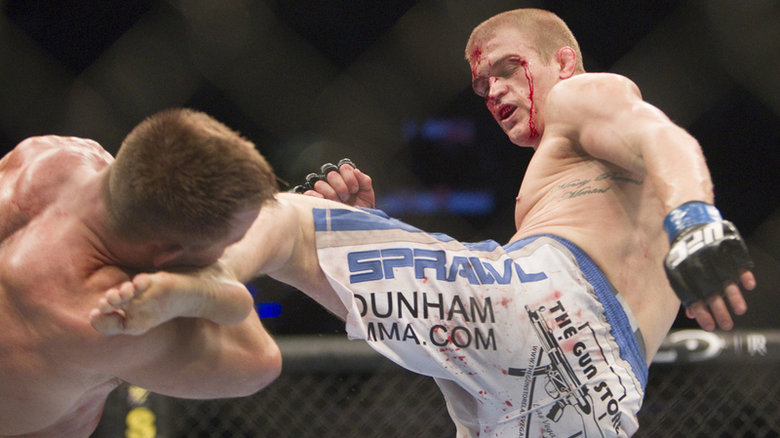
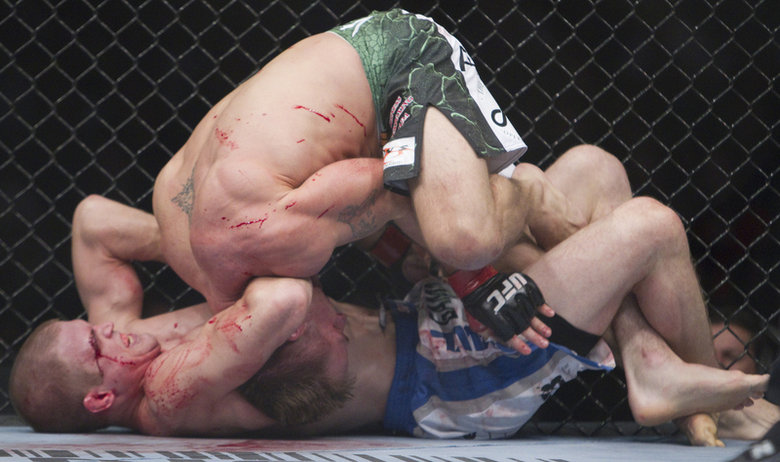
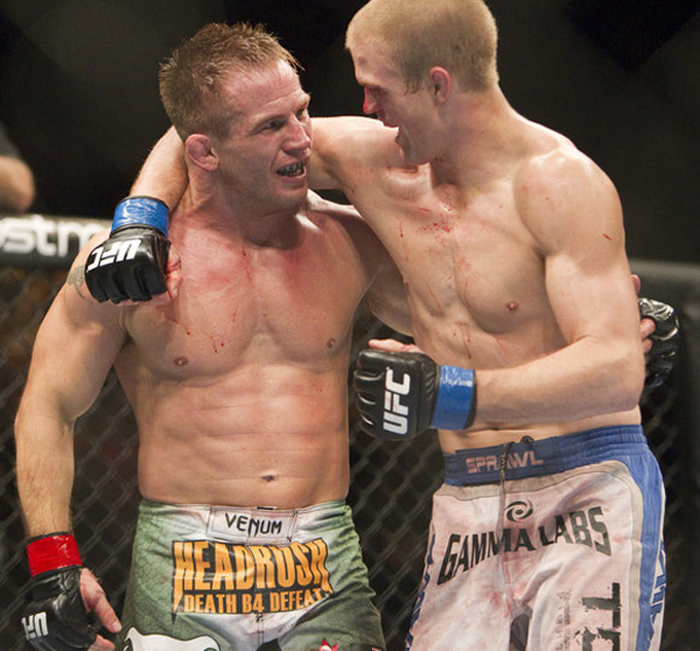
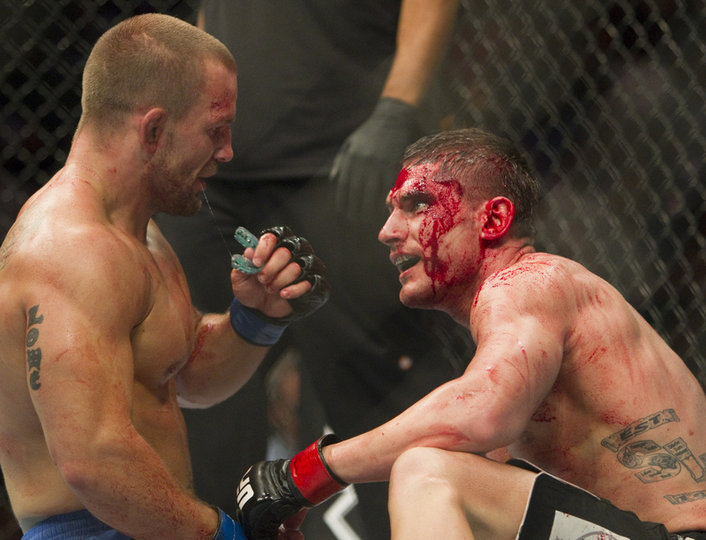
An Ecstasy, An Inebriation, of the Male


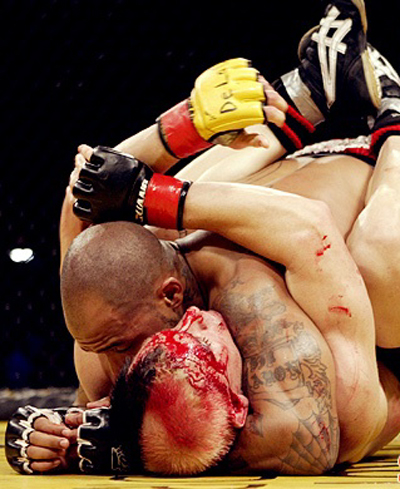
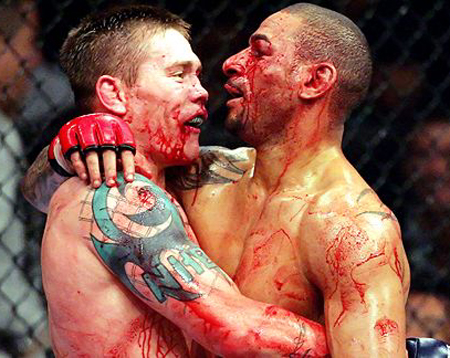



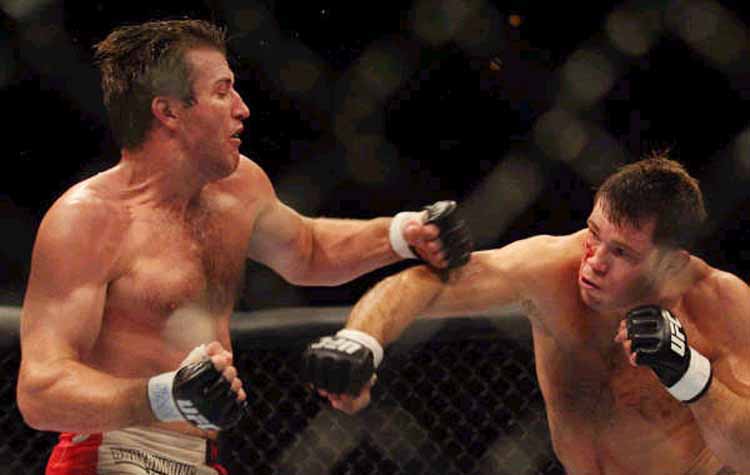








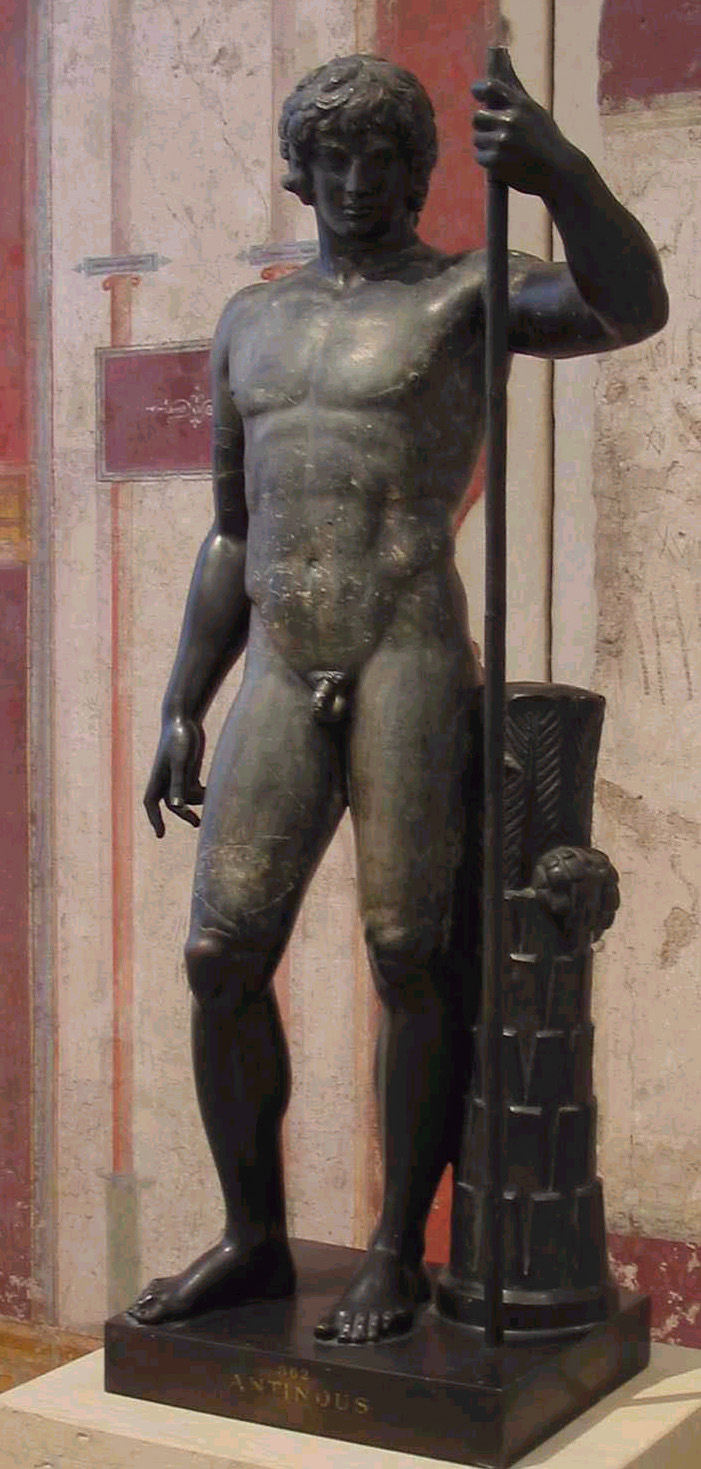
Antinous
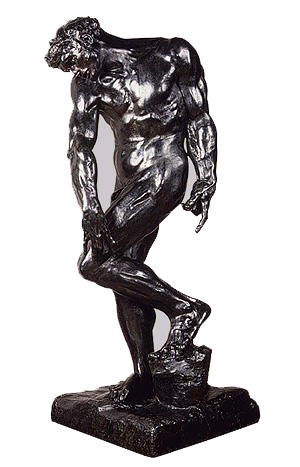


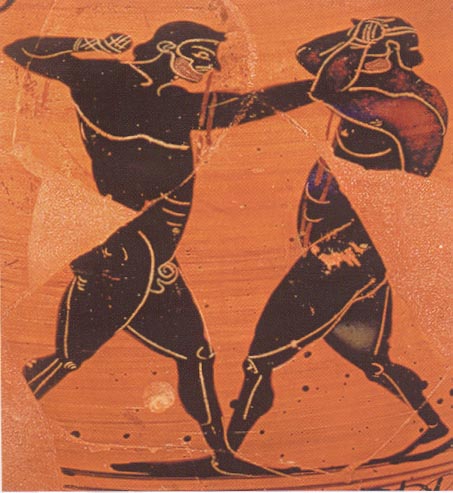
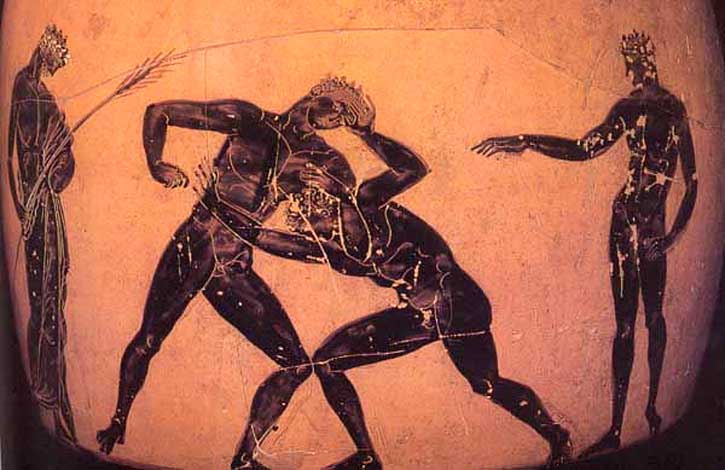
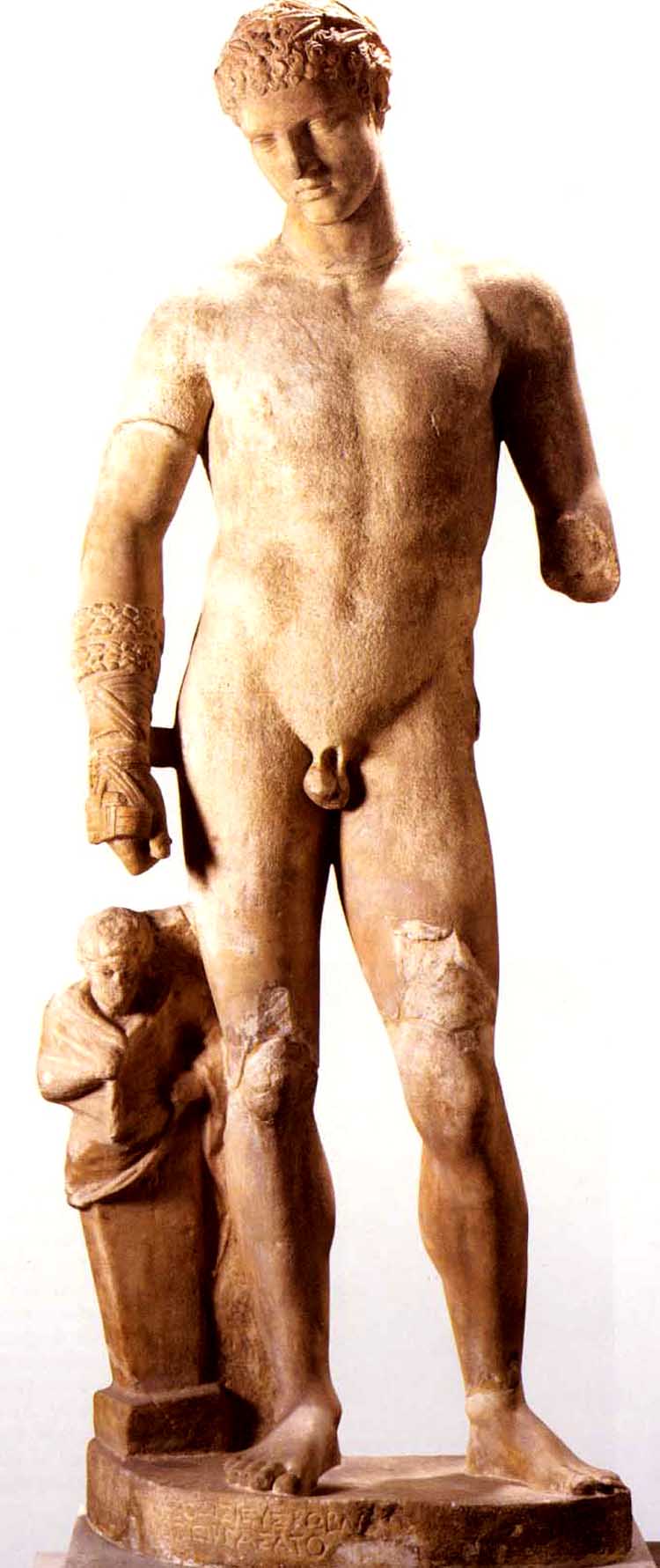
And those who have been of this little company [or philosophers] and have tasted the sweetness and blessedness of this possession and who have also come to understand the madness of the multitude sufficiently and have seen that there is nothing, if I may say so, sound or right in any present politics, and that there is no ally with whose aid the champion of justice could escape destruction, but that he would be as a man who has fallen among wild beasts, unwilling to share their misdeeds and unable to hold out singly against the savagery of all, and that he would thus, before he could in any way benefit his friends or the state come to an untimely end without doing any good to himself or others -- for all these reasons I say the philosopher remains quiet, minds his own affair, and, as it were, standing aside under shelter of a wall in a storm and blast of dust and sleet and seeing others filled full of lawlessness, is content if in any way he may keep himself free from iniquity and unholy deeds through this life and take his departure with fair hope, serene and well content when the end comes.
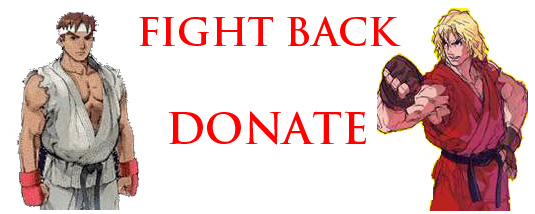
~Proverbs 16:8
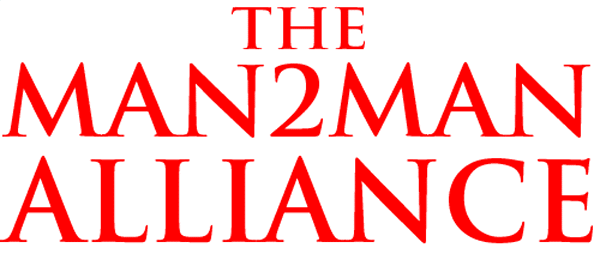






who reject anal penetration, promiscuity, and effeminacy
among men who have sex with men







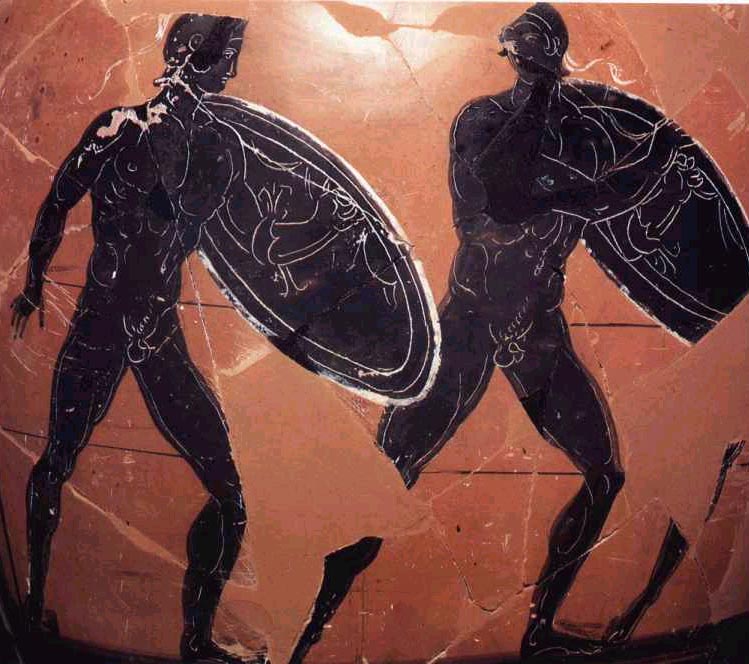
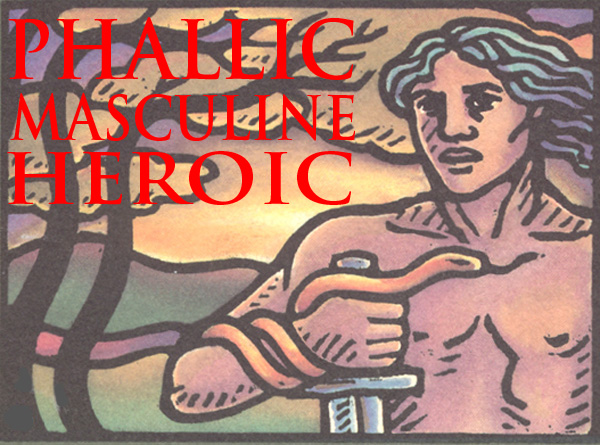






| Heroes Site Guide | Toward a New Concept of M2M | What Sex Is | In Search of an Heroic Friend | Masculinity and Spirit |
| Jocks and Cocks |
Gilgamesh | The Greeks | Hoplites! | The Warrior Bond | Nude Combat | Phallic, Masculine, Heroic | Reading |
| Heroic Homosex Home | Cockrub Warriors Home | Heroes Home | Story of Bill and Brett Home | Frot Club Home |
| Definitions | FAQs | Join Us | Contact Us | Tell Your Story |




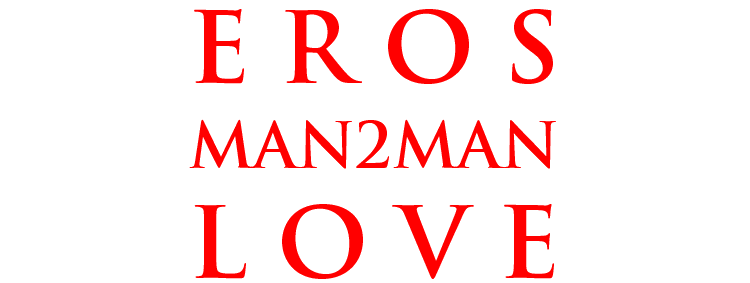
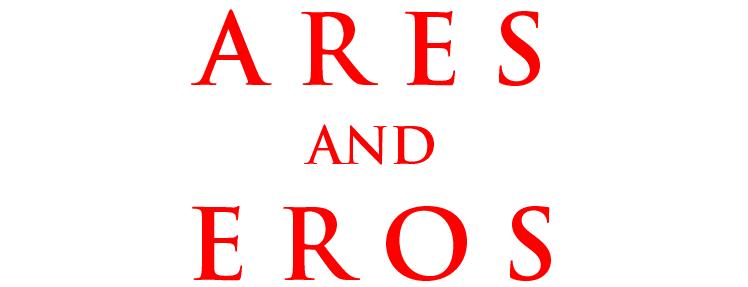
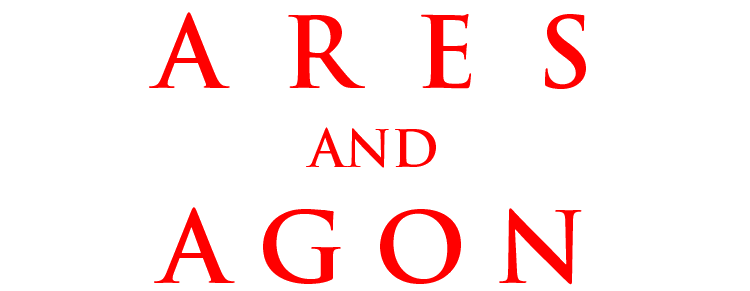
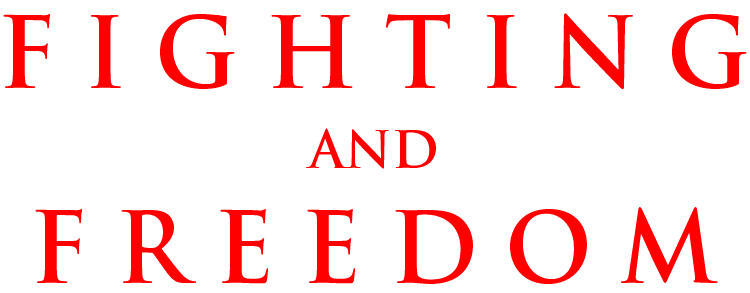
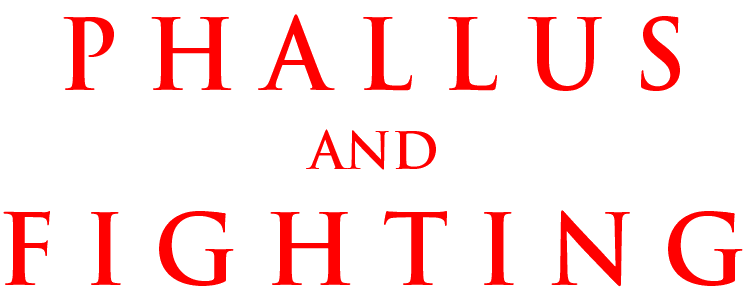
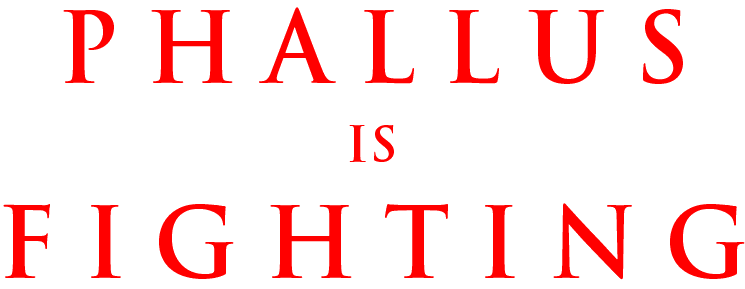
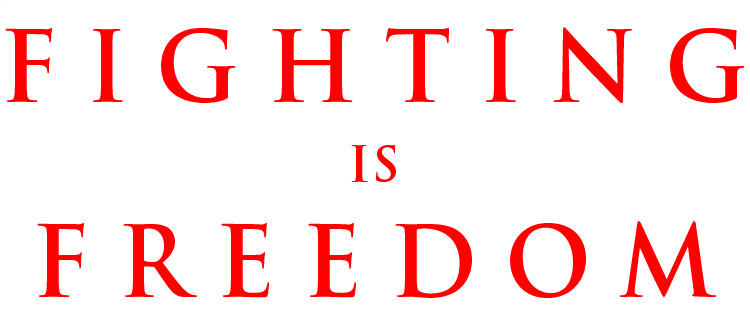
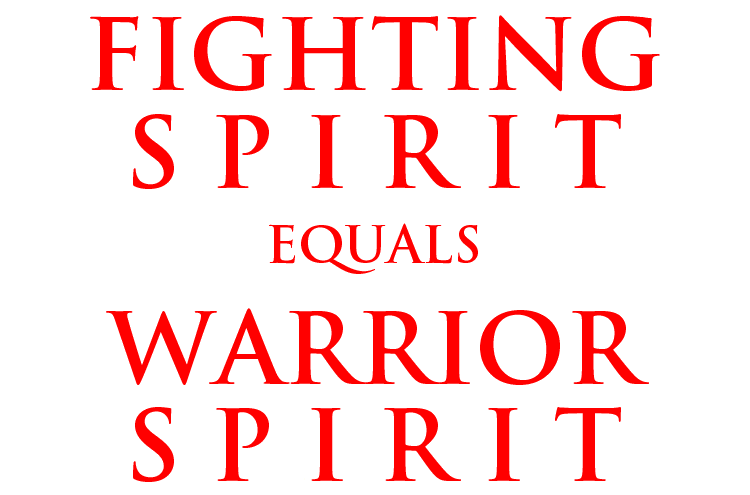

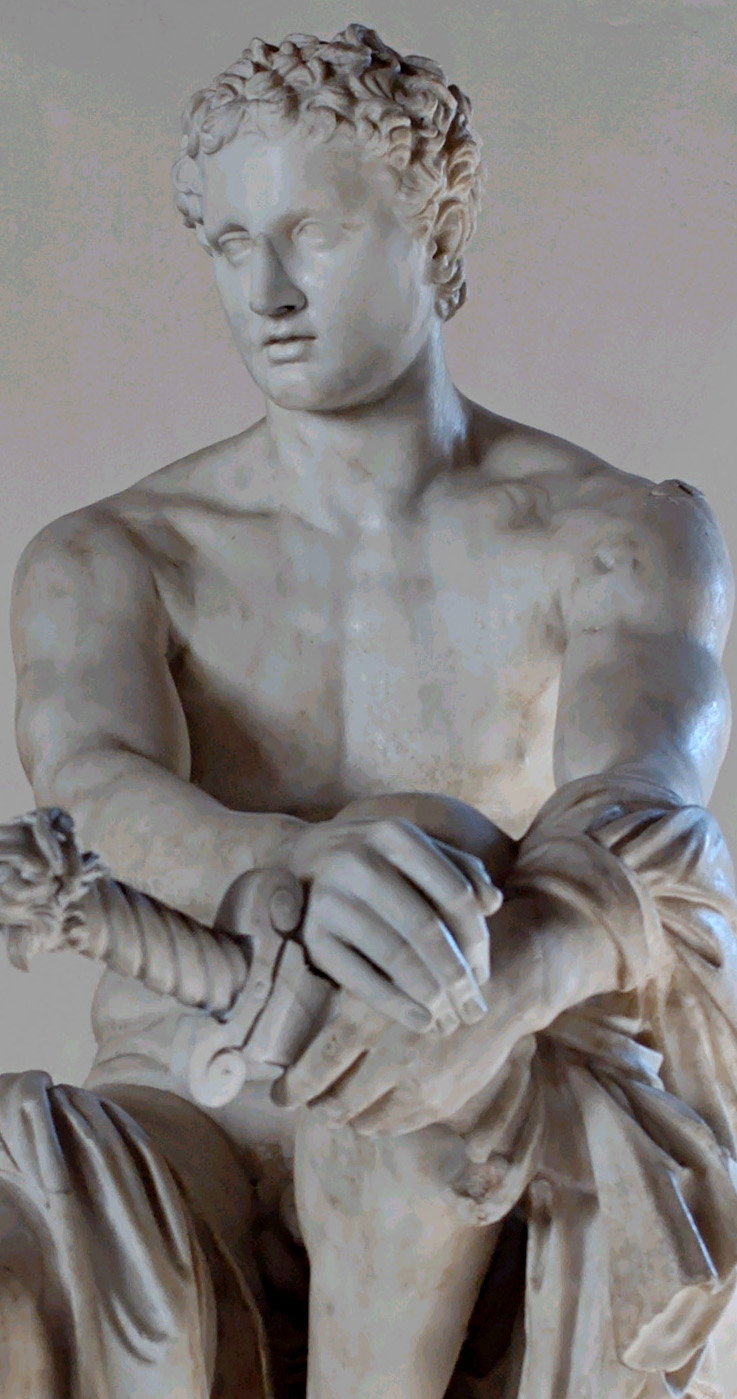

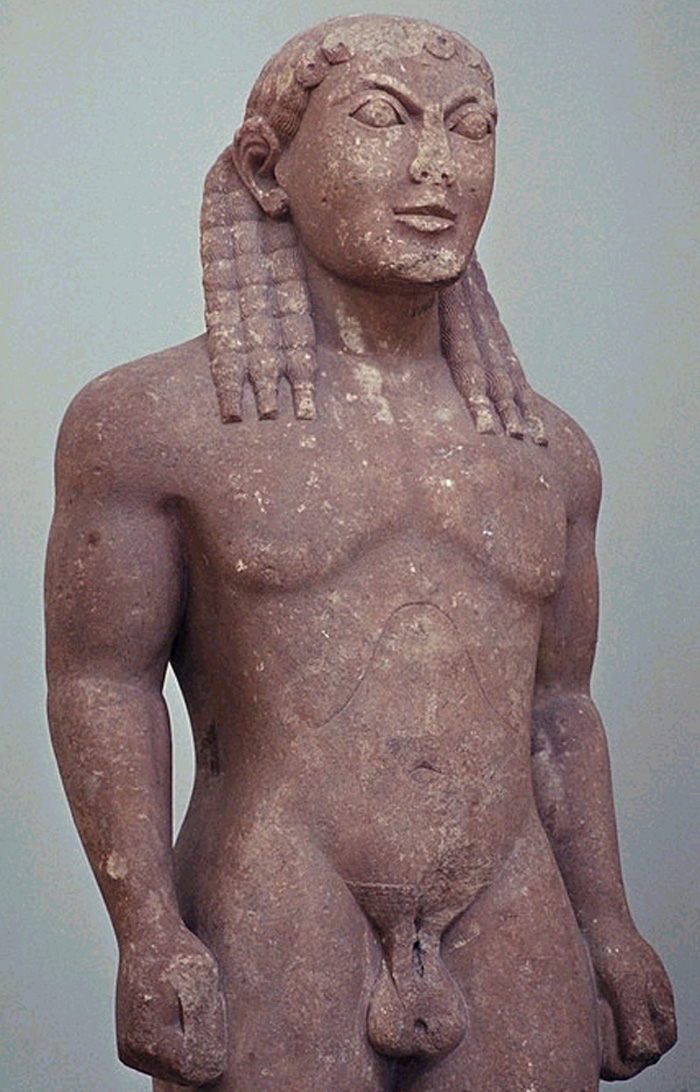

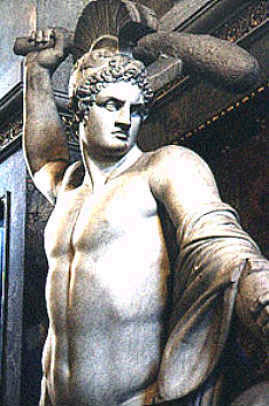














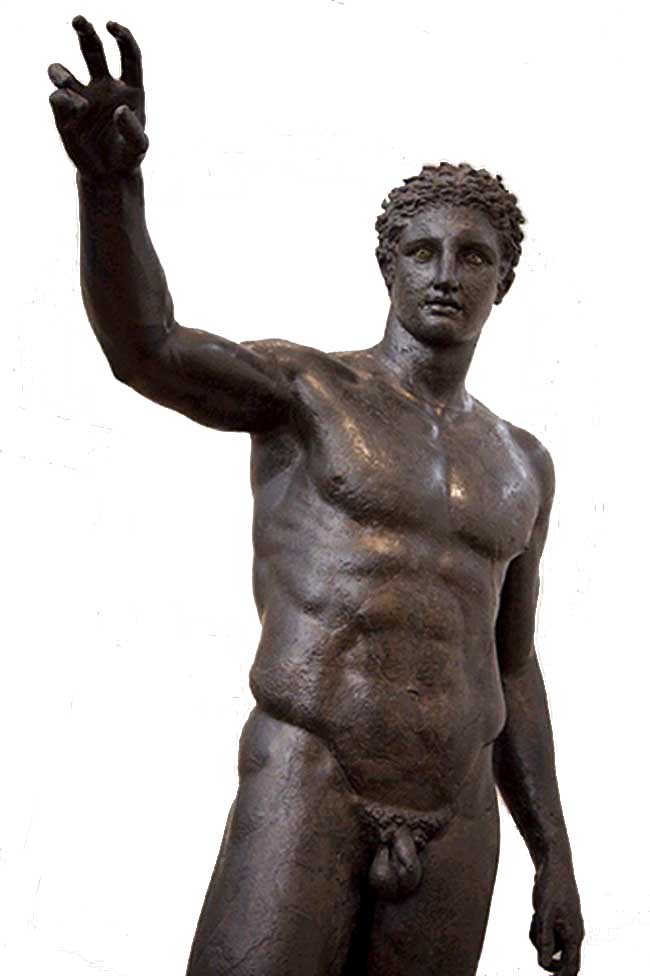



















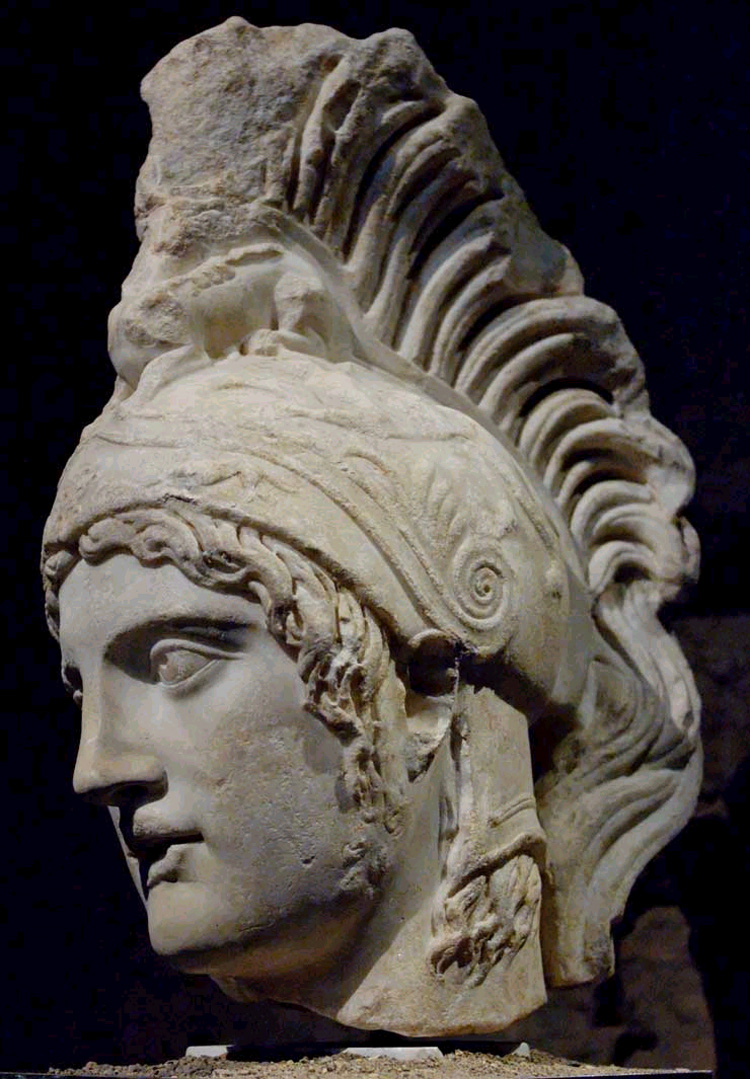


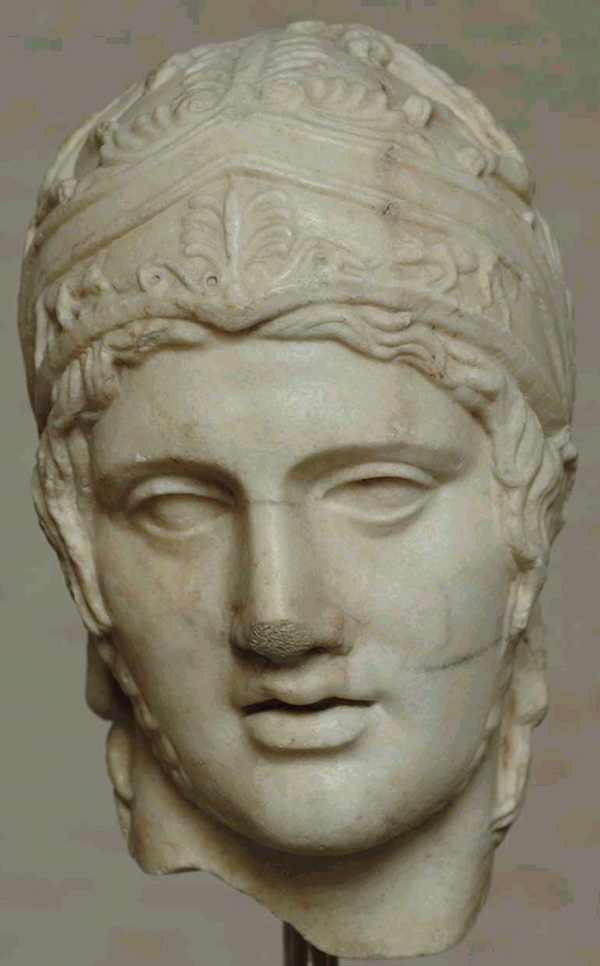














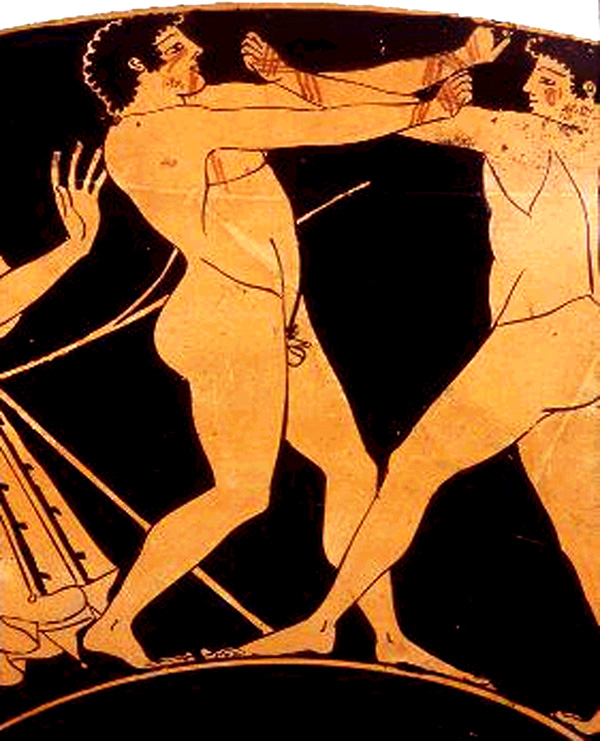


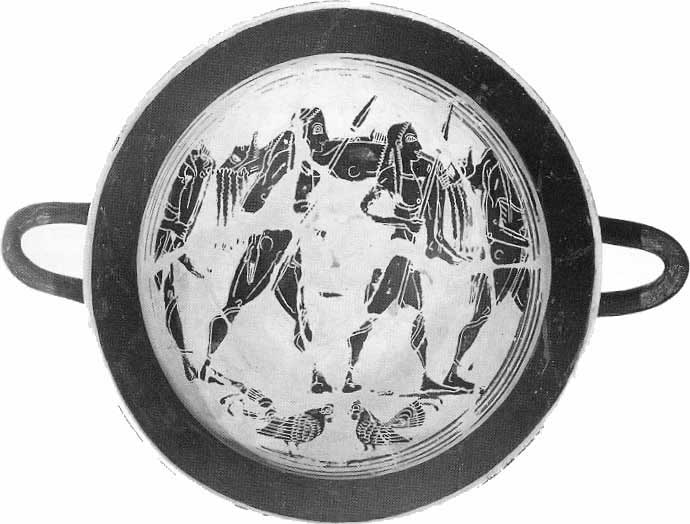



































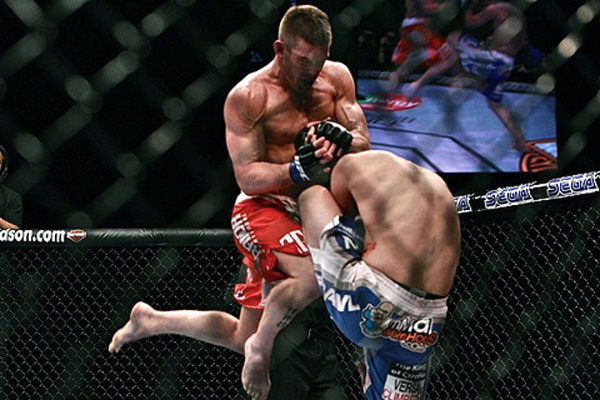

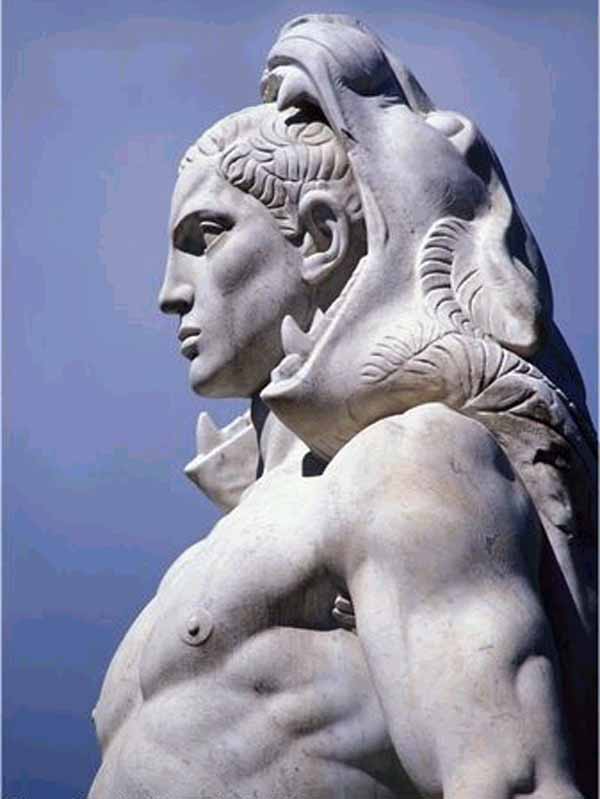
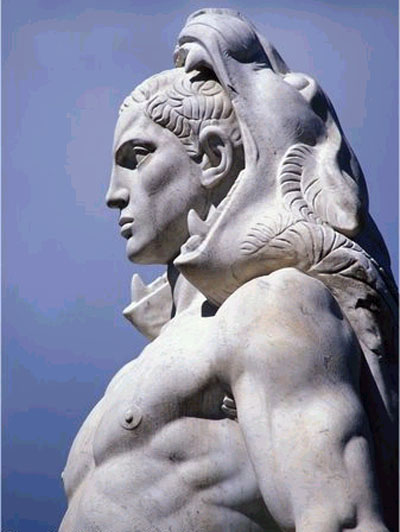
If an army went into battle without proper training and organisation they would lose. Historic example, in the English Civil War (1642 to 1646) the army of King Charles 1st was better organised and won most of the first battles; however Oliver Cromwell trained and organised the men fighting on Parliament's side into the New Model Army, and they won! If they had not been so organised the King would have carried on as the dictator he had been. Maybe eventually we would have got the freedoms that we enjoy now but it would have come more slowly and the monarch would have given them very grudgingly; so organisation is as you say vital to winning.




